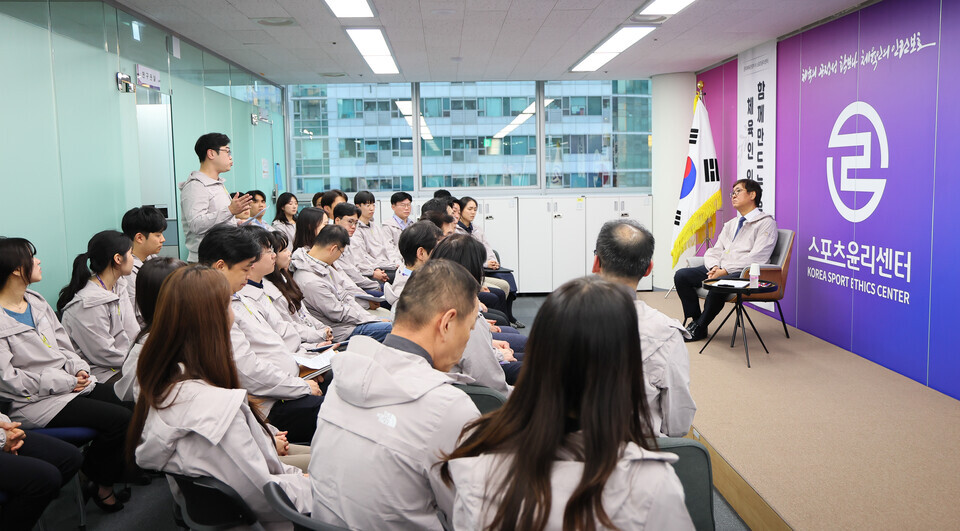
SEOUL – The Ministry of Culture, Sports and Tourism (MCST) is ramping up its 'zero tolerance' approach to violence and human rights abuses in the Korean sports community, following a special reporting period that saw a stark number of complaints.
On October 24, Minister Choi Hwiyoung visited the Sports Ethics Center in Mapo-gu, Seoul, where he met with staff and emphasized the necessity of a paradigm shift. "The sports community must change to prioritize human rights alongside performance," Minister Choi stated during a meeting with employees of the center. "From now on, no form of violence will be tolerated."
The Sports Ethics Center, an organization under the MCST, is responsible for investigating reports of human rights violations, violence, and corruption within the athletic world.
The ministry’s resolve comes after a month-long 'Special Reporting Period for Sports Violence' in September yielded a total of 198 complaints, with 105 of those relating specifically to human rights infringements. The MCST plans to enhance cooperation with the Sports Ethics Center and the National Police Agency to ensure swift follow-up actions. Minister Choi stressed the government’s commitment, stating, "It is the government's responsibility to foster a culture that respects human rights and to establish a system that honors victims' voices."
The MCST had already announced a "no-leniency, severe punishment" policy in August to eradicate violence in sports. This measure aims to instill a widespread awareness that a single act of violence could lead to permanent expulsion from the sports community—a 'one-strike out' policy. To achieve this, the ministry is promoting several key actions: blocking offenders from entering the sports community, imposing zero-tolerance penalties for acts of violence, and strengthening external oversight systems.
The policy has already been put into action. On October 22, the ministry utilized the National Sports Promotion Act to revoke the coaching certification of a middle school ssireum (Korean traditional wrestling) coach who had assaulted athletes with tools like a shovel. This incident marks the first official application of the 'one-strike out' principle, signaling the government's firm resolve to cleanse the sports community of abusive practices.
The ministry's proactive stance is a direct response to longstanding issues of abuse, often fueled by a culture that prioritizes victory and hierarchical obedience over the well-being and fundamental rights of athletes. By implementing stringent punitive measures and reinforcing external monitoring, the MCST hopes to establish a safer, more equitable environment for all individuals involved in sports. The message from the top is clear: the era of tolerating abuse for the sake of athletic achievement is officially over.
[Copyright (c) Global Economic Times. All Rights Reserved.]




























